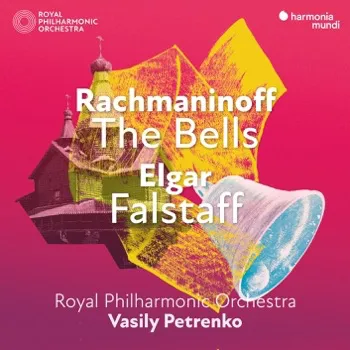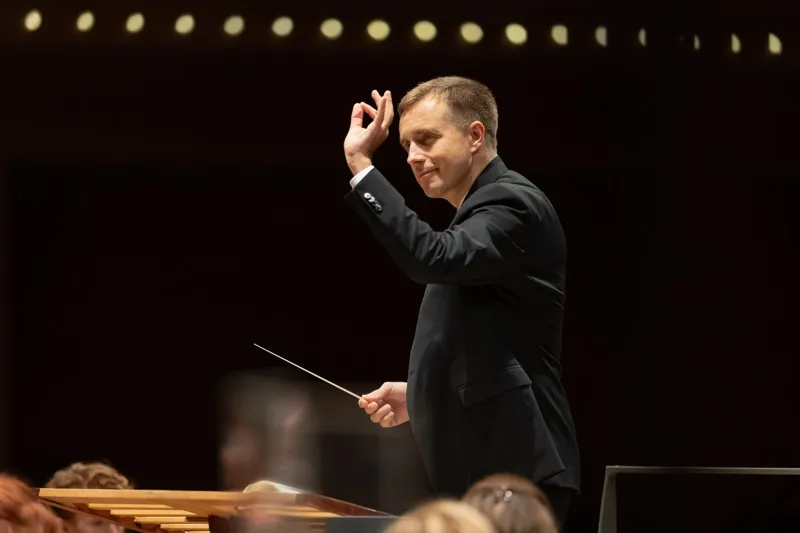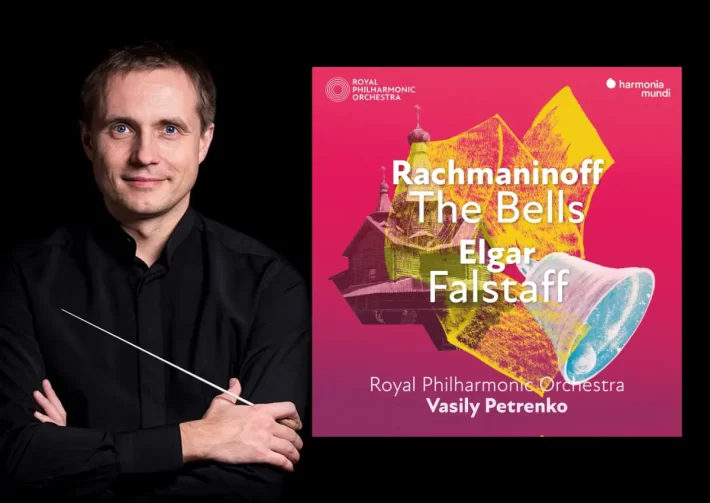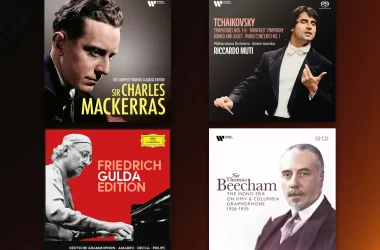This release marks the beginning of a new recording partnership with Harmonia Mundi. On paper, these two works make strange bed fellows, other than the fact that both were premiered in 1913. But in the CD booklet Petrenko provides an introductory note that lays out connections between them.

There are quite a few well-regarded recordings of Rachmaninoff’s The Bells Each has much to offer, but none convince me that Rachmaninoff was correct in calling this his finest work. But Petrenko’s fabulous reading may well change my mind.
Pacing is superb. Petrenko creates an inexorable flow in each movement that allows for plenty of detail without sacrificing dramatic expression. The musicians are clearly inspired by their Music Director. This orchestra’s recordings of Tchaikovsky’s final three symphonies (Gatti/Harmonia Mundi) are among my favorites because of their tremendous passion and communicative emotional power. This performance has those same qualities; it has been quite some time since the RPO made a record with this kind of challenging repertoire – surely the energy and commitment heard here, at least in part, is the pleasure of the players. Recording engineers Tom Lewington and Mike Hatch ensure the choir has tremendous presence, and kudos too to Gavin Carr’s work as Chorus Master – diction, balance, color, and tuning are exemplary.
In the opening movement, we are immediately drawn in by light sparkle (mimicking sleigh bells) of the playing, and the dramatic weight of the choir’s first entrance (1’48”). The reading build to a climax of refulgent colors (4’55”). Mirjam Mesak’s solo in the second movement is lovely, and both she and Petrenko (who adopts a quick tempo – only Rattle in Berlin/Warner Classics is faster) keep the music from becoming maudlin. Yet the performance never feels rushed, so that Rachmaninoff’s luscious harmonies really depict the languid glow of love and marriage.
When I saw a timing of 8’30” for “The Loud Alarm Bells,” I expected to be disappointed. Other excellent performances of this movement (Kondrashin and Rattle) are significantly faster. But Petrenko builds tension masterfully, making the percussion-laden climax (7’30”) terrifying. The full-throated singing of the Philharmonia Chorus is thrillingly incisive.

Vasily Petrenko (image: © Antoine Saito)
The final movement is again on the faster side, less dirge than anguished lament, a feeling heightened by Andril Kymach’s impassioned solo. Once again, choir and orchestra build great waves of sound that make the text’s grief and sorrow palpable, the gorgeous string playing in the Coda is the first signal of sadness turning to resignation and acceptance.
Elgar – Falstaff
Elgar’s own 1932 recording of “Falstaff” comes in at just under 33 minutes; surprisingly, Petrenko is considerably slower, lasting almost 38 minutes. Vivid characterization and nimble articulation compensate most of the time. Just sample the opening section in which the two main themes representing Falstaff and Prince Henry are introduced. Petrenko’s Falstaff is obnoxious and overweight (though he still has a spring in his step), while Prince Hal has an attractive youthful swagger. Horns, here and throughout, are resplendent without dominating (as they so often do in Solti’s LPO/Decca account) – power without brashness.
The Gadshill-Boar’s Head section (track 7) affords opportunity for brilliant playing (sample the string’s scurrying figures around 1’30”). Woodwind principals, especially the chortling bassoon (6’30”), make Falstaff’s self-pity as he drinks himself senseless both sad and bit funny.
“The Dream Interlude” (track 9), in which Falstaff dreams of happier times, is the emotional heart of the work, and Petrenko explores those deeper emotions most affectingly. The final episodes, in which Prince Hal becomes King and rejects his old friend, are vividly chronicled, though here slower tempos sometimes impeded momentum (track 14, 1’30” for instance), and no one has conjured more pathos in this music than Barbirolli (Hallé/Warner Classics. Interestingly, Barbirolli, who was never considered a speed demon, performs the entire work in 34’25”.
Excellent program notes, and the booklet includes the orchestra and choir roster. It is good hear the Royal Philharmonic back in such impressive form, and I look forward to more releases from this partnership.
Recommended Comparisons
The Bells: Rattle | Kondrashin | Järvi | Pletnev
Falstaff: Elgar | Barbirolli | Davis | Boult

Album Details |
|
|---|---|
| Album name | Rachmaninoff – The Bells, Elgar – Falstaff |
| Label | Harmonia Mundi |
| Catalogue No. | 902788 |
| Artists | Royal Philharmonic Orchestra Philharmonia Chorus Mirjam Mesak, soprano Pavel Petrov, tenor Andrii Kymach, baritone Vasily Petrenko, conductor |



















